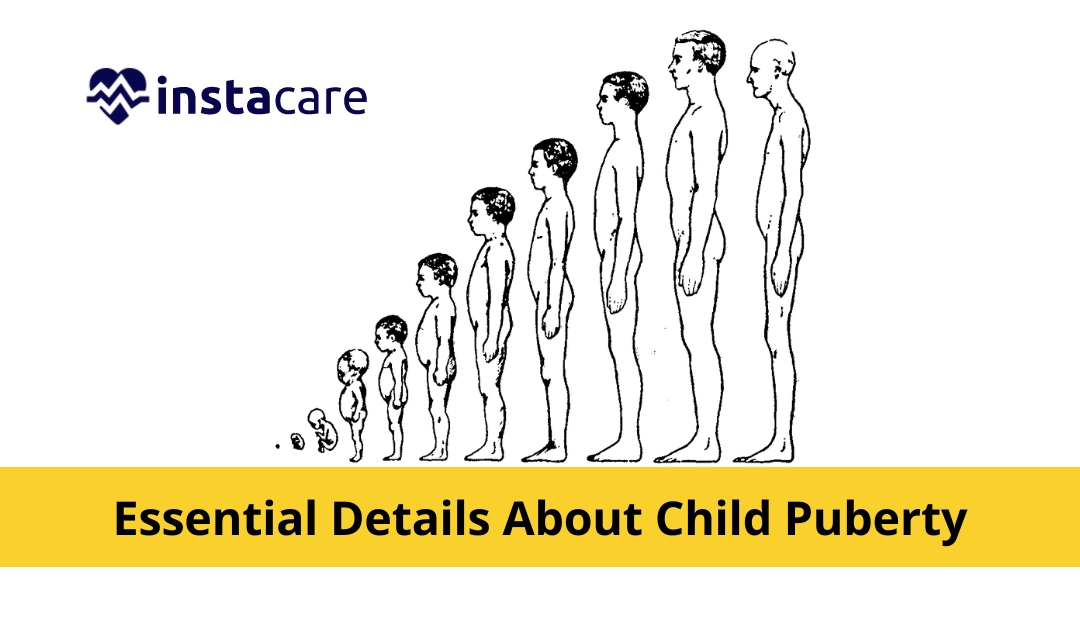Puberty is a physical and emotional period that occurs in both boys and girls as they transition from childhood to adolescence. It is a time of growth, development, and maturation that brings about several changes in the body and mind of a child. Puberty can also be challenging for children and parents alike, as it can be difficult to understand and cope with the changes happening.
This article will discuss all the essential details parents need to know about child puberty. We will cover what puberty is when it occurs, the physical and emotional changes, and how parents can help their children navigate this period.
What are the stages of puberty?
Puberty can be divided into several distinct stages, each marked by specific physical changes. These stages can vary somewhat between boys and girls, but the general progression is similar.
- For girls, puberty typically begins with the development of breast buds, which may appear as early as age 8. This is followed by the growth of pubic hair, which usually appears around age 10 or 11.
- For boys, puberty typically begins with the growth of testicles and the development of pubic hair, which usually occurs between ages 9 and 14.
What are the signs of puberty?
The signs of puberty are different for boys and girls. Here are some of the changes that occur during puberty:
Signs of puberty in girls
- Breast development - one of the first signs of puberty in girls is breast development. It usually begins with the development of tiny breast buds under the nipples.
- Body hair growth - during puberty, girls may also experience increased body hair growth, particularly in the pubic area and underarms.
- Menstruation - menstruation, or the onset of the menstrual cycle, is another significant sign of puberty in girls. It occurs between the ages of 10 and 15.
- Growth spurt - girls experience a growth spurt during puberty, typically between 9 and 14.
- Acne - some girls may also experience acne during puberty, which is caused by increased oil production in the skin.
View More: What To Do For Diaper Rash
Signs of puberty in boys
- Testicular growth - one of the first signs of puberty in boys is testicular growth.
- Penis growth - along with testicular growth, boys also experience penis growth during puberty.
- Body hair growth - boys may also experience increased body hair growth, particularly also in the pubic area, underarms, and face.
- Voice deepening - during puberty, boys' voices deepen as the vocal cords lengthen and thicken.
- Growth spurt - boys experience a growth spurt during puberty, typically between the ages of 11 and 16.
What are the emotional changes during puberty?
Puberty is not only a time of physical changes but also emotional changes. Adolescents often experience a range of emotions during puberty, including:
- Mood swings - adolescents may experience sudden and extreme changes in mood, such as feeling happy one moment and sad the next.
- Anxiety and depression - adolescents may also experience anxiety and depression during puberty, which hormonal changes, social pressures, and academic stress can cause.
- Increased sensitivity - adolescents may become more sensitive to criticism, rejection, and negative feedback during puberty.
- Sexual attraction- as children enter puberty, they may begin to experience sexual attraction and have romantic feelings for others. Parents must discuss these feelings with their children and provide them with the necessary information and resources to manage their sexual development.
Managing puberty
Managing puberty can be challenging for both children and parents, but there are several things that parents can do to support their children during this time. Some tips for managing puberty include:
- Start talking early: it is essential to start talking about puberty early with your child, ideally before it even starts. This way, your child will know what to expect and be better prepared when the changes happen. You can start by explaining the biological process of puberty and answering any questions your child may have.
- Be open and honest: puberty can be a sensitive topic, but it's crucial to be open and honest with your child. Please encourage them to ask questions and provide accurate and age-appropriate information.
- Provide support: puberty can be challenging for children, so it's essential to provide them with emotional support. Listen to their concerns and offer reassurance and comfort when needed.
View More: Top 9 nutritionally balanced food options for skinny kids to put on healthy weight
Conclusion
Puberty is a natural process that all children will go through at some point in their lives. It is a time of significant physical and emotional changes, and it can be challenging for parents and children to navigate.
If you want to consult with the best pediatrician in Pakistan, book an appointment through InstaCare or you can call helpline number 02137136090 for assistance to find the right professional for your concerns.











